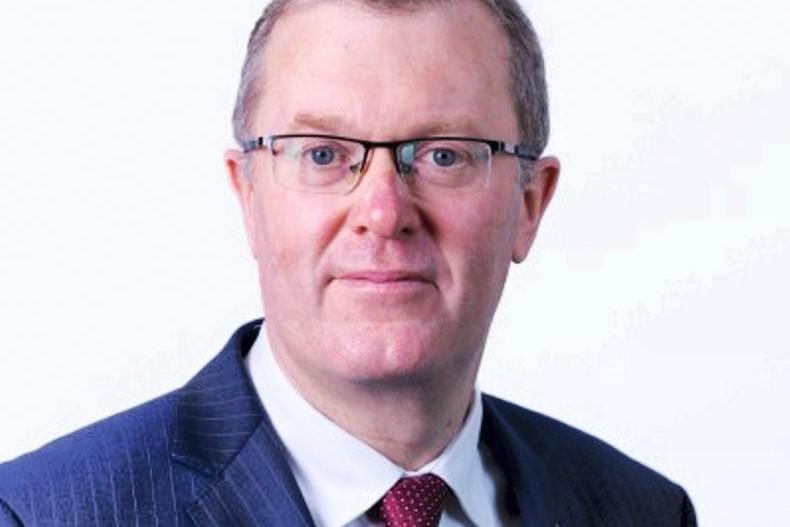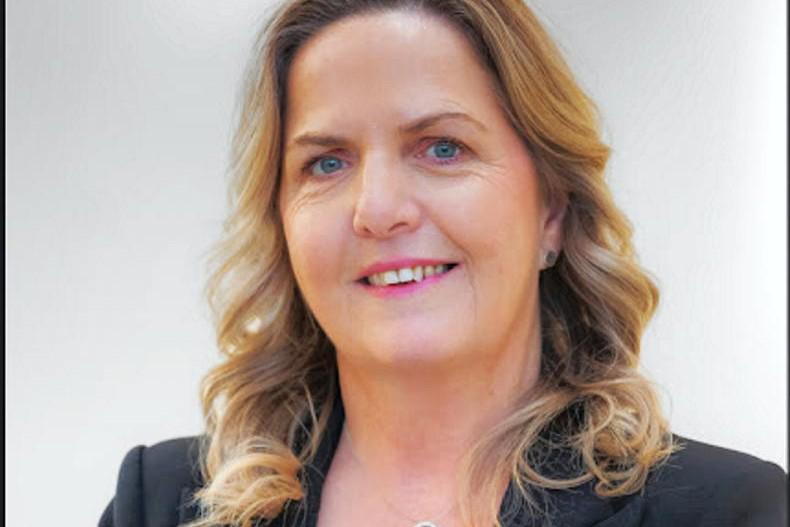Up to 400 medications on
the shortage list each week. 84% of pharmacists expecting the problem to get worse. Pharmacists spending 30 hours a week managing medicine shortages.
The Irish Pharmacy Union (IPU) annual Medicine Shortage Survey results don’t make for comforting reading.
Each week the Health Products Regulatory Authority (HPRA) publishes a list of medications that are in short supply in this country. Expected availability dates are stated, where this is known.
A look at the current list shows issues with sourcing several antibiotics, some dementia and ADHD medications, some pain medication, some anti-depressants as well as some cancer treatments, for example.
“Behind each medicine that is in short supply are patients who need them for their health and wellbeing,” says pharmacist Clare Fitzell, the IPU’s head of strategic policy.
“Medicine availability issues have the potential to impact medical conditions and can create considerable stress and inconvenience to patients,” she adds. Below Clare answers some of the major questions around shortages at present.
What is the biggest shortage
at present?
Generally, the biggest issue is when there is not another alternative available. For most medications there is an alternative that can be prescribed but not in all cases.
The medication that has caused the most recent issue was a medicine called salamol nebules (salbutamol), for people with asthma.
That’s because there wasn’t another equivalent product available in the Irish market so we had to go outside of Ireland to try source that product from another country.
Warfarin is in short supply at present too. It is used to prevent the blood from clotting.
It’s hard to say what the biggest problem is because for an individual patient if they don’t get the drug they are used to using and is working for them, then that is an issue for them regardless of whether it’s the biggest issue on the market.
There are alternatives for most
of the 300-400 medications on the
shortage list.
Will the alternative be the same
and work as well?
To be a generic it needs to have the same active ingredient and needs to prove that it can get into solution and into your body in the same way that the original product would have done.
Tablets and liquids are made up of lots of other things as well, known as excipients, occasionally there would be another aspect of how that drug is formulated that may not work as well for you, but generally if they are on the HPRA generic substitution list they are deemed to be equivalent in terms of active ingredients.
Historically, what shortages have been the most serious?
In December 2022, there was an antibiotic shortage. That was difficult because it involved numerous different antibiotics. The shortage was caused by a peak in demand which had not
been forecast.
We have had difficulty sourcing insulin sometimes too. It’s a difficult one when it goes into short supply because you have to switch to a different brand of insulin.
Insulin is quite specific in the way it acts, and they all act in a slightly different way so if the one you are using goes into short supply, it can lead to changing the brand and this means that you have to do a lot more monitoring of blood sugars.
A year ago, also, a lot of the ADHD
medicines were in short supply. This was particularly stressful for families to
deal with.
Why are shortages happening?
Shortages of medicines is multi-factorial. There have always been shortages but what’s consistent is that it’s getting slightly worse each year.

Clare Fitzell Irish Pharmacy Union head of strategic policy.
It could be that a drug is in short supply because it doesn’t meet manufacturing quality standards (so there is a delay in supply).
Another reason is because the demand can’t be met, with Ozempic,
for example.
Also, we do know that across the whole medicine supply chain, wholesalers, manufacturers and pharmacists are all holding less stock than we would have done a few years ago. That’s mainly driven by the cost of holding medicines.
Is there too much reliance on
manufacturing plants in the Far East?
At present, yes. A lot of the APIs – Active Pharmaceutical Ingredients - of medicines are made in China and India.
Currently, the Department of Health and HPRA, along with their European colleagues (to improve the situation) have commenced work to find out from manufacturers who are making a finished product if they are using the same API and where that API is sourced.
That’s to establish if it’s produced from one plant somewhere in India or China. If that API is used across multiple products, you can have a lot of products that are unavailable at one point in the market.
Is anything being done to solve this issue?
The work is ongoing on a European level to understand how many of these APIs are not made in Europe, and whether they need to bring some of that manufacturing back into Europe.
What problems do shortages cause
for pharmacists?
One of the problems pharmacists have is visibility of a shortage in advance, so sometimes we’re not getting enough notice that a particular medication is going to be in short supply.
It’s only when we go to order it that we realise it is not available. Then it’s too late as you have patients coming in shortly for it.
You’re under a bit of pressure to get a product so it’s adding pressure on pharmacists and their teams trying to source alternative products. It is often unseen work.
How much time does this sourcing take?
In our recent survey, pharmacists and their teams spent four hours 37 minutes a week on this. That’s over 30 hours a month. It is a significant amount of time and it is increasing year on year.
If they can’t source a medication
and there isn’t an agreed generic substitution, pharmacists have to contact the prescriber (GP or hospital consultant) to ask for a change (of prescription). That can cause delays.
Recently, legislation has passed that will, in time, support pharmacists changing to another product without having to go back to contact the prescriber when the medicine is in short supply. This should speed up
the process.
What can patients do if the medication they take is unavailable?
The best advice is to talk to their pharmacist about what the most appropriate course of action should be. Pharmacists will have access to databases of wholesalers which will explain what other products are available.
Patients can also check the weekly Health Products Regulatory Authority (HPRA) list. It is publicly available. They can also report a shortage to the HPRA.
The future – what are the prospects?
It’s hard to know. 84% of pharmacists surveyed this year say they expect the situation to get worse.
An example of a medication shortage provided by Áine McCabe of McCabe’s pharmacy is Parkinson’s disease medication, Rasagiline. It was in short supply since summer 2022.
At one point in 2023, there was no generic equivalent available. Patients who needed this medication couldn’t understand how the Government could allow this medication to be unavailable to them.
Alternatives were discussed and sourced but switching products for patients stabilised on this medicine was difficult and time-consuming and there were concerns about increased risk of falls. Then the generic went short which meant a switch to another medication. This caused more confusion and anxiety.
This kind of situation is happening across many medications, pharmacists say.
Note: Patients unable to get some medications also try to source it themselves in Northern Ireland or abroad.
To check current shortages visit hpra.ie/homepage/medicines/medicines-information/medicines-shortages
Read more
‘My sister died from sepsis – I’d never heard of it before’
School is around the corner once again – check out these helpful Healthbytes
Up to 400 medications on
the shortage list each week. 84% of pharmacists expecting the problem to get worse. Pharmacists spending 30 hours a week managing medicine shortages.
The Irish Pharmacy Union (IPU) annual Medicine Shortage Survey results don’t make for comforting reading.
Each week the Health Products Regulatory Authority (HPRA) publishes a list of medications that are in short supply in this country. Expected availability dates are stated, where this is known.
A look at the current list shows issues with sourcing several antibiotics, some dementia and ADHD medications, some pain medication, some anti-depressants as well as some cancer treatments, for example.
“Behind each medicine that is in short supply are patients who need them for their health and wellbeing,” says pharmacist Clare Fitzell, the IPU’s head of strategic policy.
“Medicine availability issues have the potential to impact medical conditions and can create considerable stress and inconvenience to patients,” she adds. Below Clare answers some of the major questions around shortages at present.
What is the biggest shortage
at present?
Generally, the biggest issue is when there is not another alternative available. For most medications there is an alternative that can be prescribed but not in all cases.
The medication that has caused the most recent issue was a medicine called salamol nebules (salbutamol), for people with asthma.
That’s because there wasn’t another equivalent product available in the Irish market so we had to go outside of Ireland to try source that product from another country.
Warfarin is in short supply at present too. It is used to prevent the blood from clotting.
It’s hard to say what the biggest problem is because for an individual patient if they don’t get the drug they are used to using and is working for them, then that is an issue for them regardless of whether it’s the biggest issue on the market.
There are alternatives for most
of the 300-400 medications on the
shortage list.
Will the alternative be the same
and work as well?
To be a generic it needs to have the same active ingredient and needs to prove that it can get into solution and into your body in the same way that the original product would have done.
Tablets and liquids are made up of lots of other things as well, known as excipients, occasionally there would be another aspect of how that drug is formulated that may not work as well for you, but generally if they are on the HPRA generic substitution list they are deemed to be equivalent in terms of active ingredients.
Historically, what shortages have been the most serious?
In December 2022, there was an antibiotic shortage. That was difficult because it involved numerous different antibiotics. The shortage was caused by a peak in demand which had not
been forecast.
We have had difficulty sourcing insulin sometimes too. It’s a difficult one when it goes into short supply because you have to switch to a different brand of insulin.
Insulin is quite specific in the way it acts, and they all act in a slightly different way so if the one you are using goes into short supply, it can lead to changing the brand and this means that you have to do a lot more monitoring of blood sugars.
A year ago, also, a lot of the ADHD
medicines were in short supply. This was particularly stressful for families to
deal with.
Why are shortages happening?
Shortages of medicines is multi-factorial. There have always been shortages but what’s consistent is that it’s getting slightly worse each year.

Clare Fitzell Irish Pharmacy Union head of strategic policy.
It could be that a drug is in short supply because it doesn’t meet manufacturing quality standards (so there is a delay in supply).
Another reason is because the demand can’t be met, with Ozempic,
for example.
Also, we do know that across the whole medicine supply chain, wholesalers, manufacturers and pharmacists are all holding less stock than we would have done a few years ago. That’s mainly driven by the cost of holding medicines.
Is there too much reliance on
manufacturing plants in the Far East?
At present, yes. A lot of the APIs – Active Pharmaceutical Ingredients - of medicines are made in China and India.
Currently, the Department of Health and HPRA, along with their European colleagues (to improve the situation) have commenced work to find out from manufacturers who are making a finished product if they are using the same API and where that API is sourced.
That’s to establish if it’s produced from one plant somewhere in India or China. If that API is used across multiple products, you can have a lot of products that are unavailable at one point in the market.
Is anything being done to solve this issue?
The work is ongoing on a European level to understand how many of these APIs are not made in Europe, and whether they need to bring some of that manufacturing back into Europe.
What problems do shortages cause
for pharmacists?
One of the problems pharmacists have is visibility of a shortage in advance, so sometimes we’re not getting enough notice that a particular medication is going to be in short supply.
It’s only when we go to order it that we realise it is not available. Then it’s too late as you have patients coming in shortly for it.
You’re under a bit of pressure to get a product so it’s adding pressure on pharmacists and their teams trying to source alternative products. It is often unseen work.
How much time does this sourcing take?
In our recent survey, pharmacists and their teams spent four hours 37 minutes a week on this. That’s over 30 hours a month. It is a significant amount of time and it is increasing year on year.
If they can’t source a medication
and there isn’t an agreed generic substitution, pharmacists have to contact the prescriber (GP or hospital consultant) to ask for a change (of prescription). That can cause delays.
Recently, legislation has passed that will, in time, support pharmacists changing to another product without having to go back to contact the prescriber when the medicine is in short supply. This should speed up
the process.
What can patients do if the medication they take is unavailable?
The best advice is to talk to their pharmacist about what the most appropriate course of action should be. Pharmacists will have access to databases of wholesalers which will explain what other products are available.
Patients can also check the weekly Health Products Regulatory Authority (HPRA) list. It is publicly available. They can also report a shortage to the HPRA.
The future – what are the prospects?
It’s hard to know. 84% of pharmacists surveyed this year say they expect the situation to get worse.
An example of a medication shortage provided by Áine McCabe of McCabe’s pharmacy is Parkinson’s disease medication, Rasagiline. It was in short supply since summer 2022.
At one point in 2023, there was no generic equivalent available. Patients who needed this medication couldn’t understand how the Government could allow this medication to be unavailable to them.
Alternatives were discussed and sourced but switching products for patients stabilised on this medicine was difficult and time-consuming and there were concerns about increased risk of falls. Then the generic went short which meant a switch to another medication. This caused more confusion and anxiety.
This kind of situation is happening across many medications, pharmacists say.
Note: Patients unable to get some medications also try to source it themselves in Northern Ireland or abroad.
To check current shortages visit hpra.ie/homepage/medicines/medicines-information/medicines-shortages
Read more
‘My sister died from sepsis – I’d never heard of it before’
School is around the corner once again – check out these helpful Healthbytes










SHARING OPTIONS